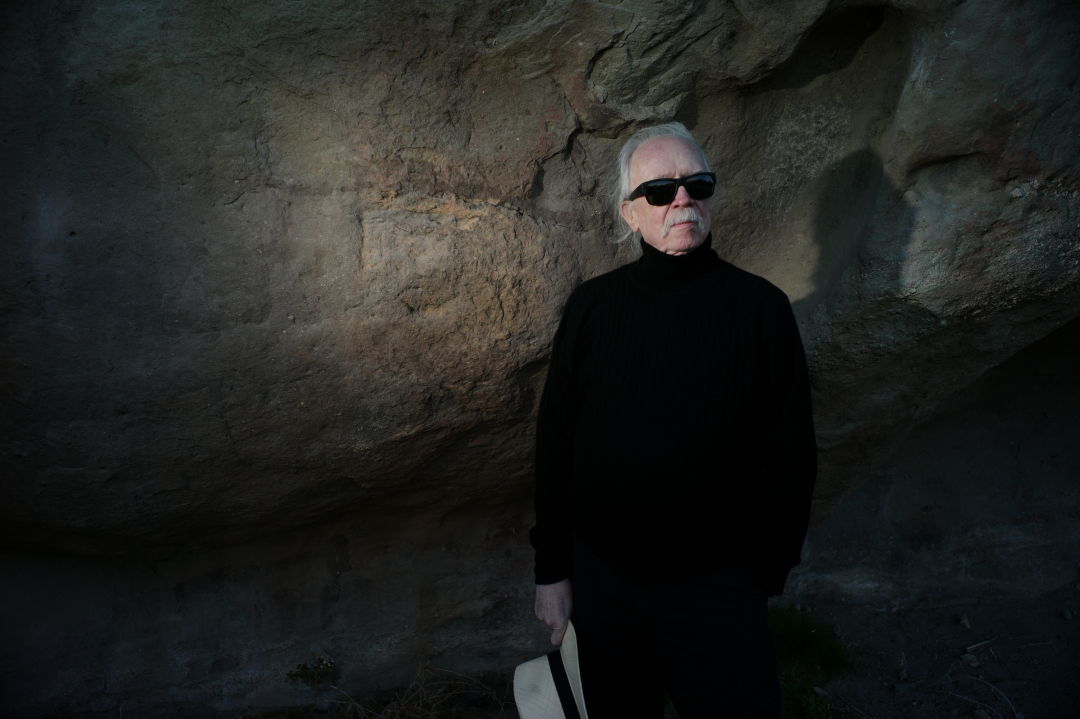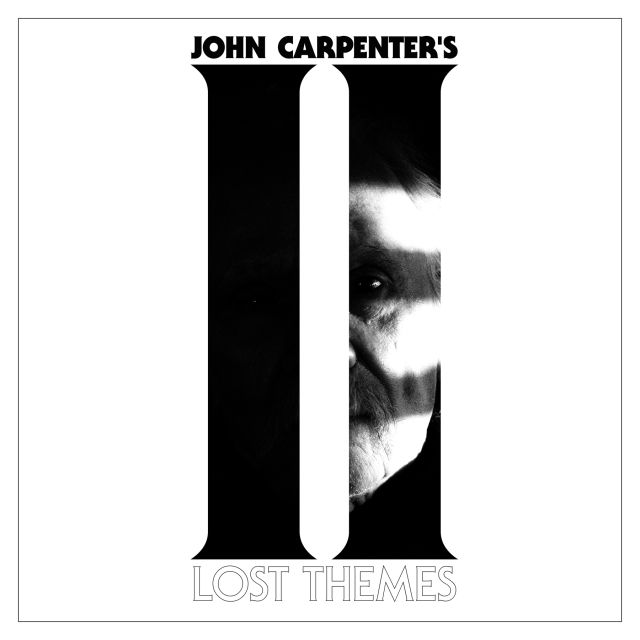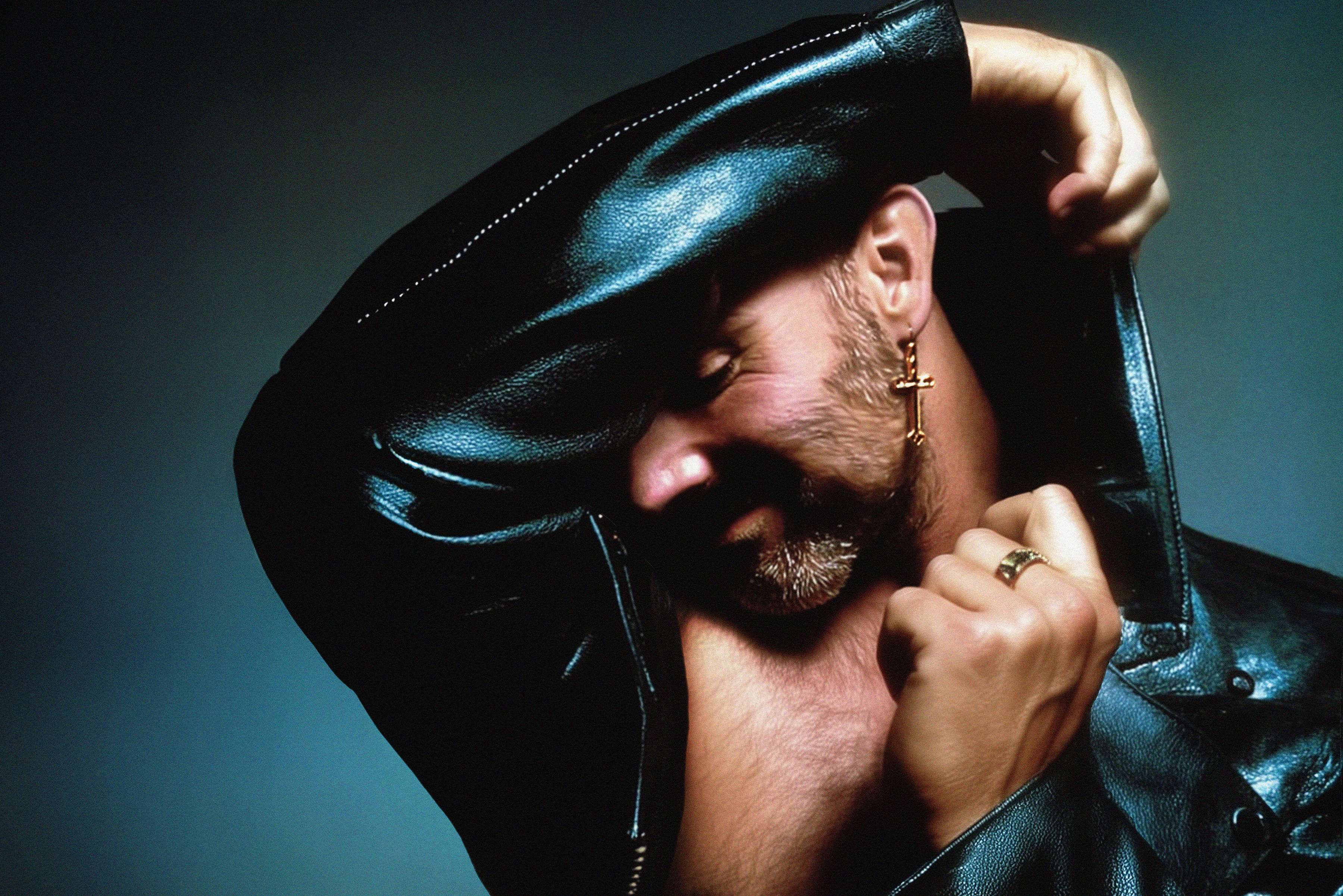Why Horror Master John Carpenter Plays Music for the 'Movies in Your Head'

John Carpenter
Image: Kyle Cassidy
Remember this?
The chilling theme from the 1978 slasher flick Halloween is arguably the most recognizable in horror film history. John Carpenter, widely known as the dark mind behind cult classics like Escape From New York, The Thing, and They Live, also scored many of his own films, including Halloween, Dark Star, Escape from LA, and Big Trouble in Little China. Last February, the 68-year-old director turned his focus entirely to making music, releasing Lost Themes.
This Wednesday, Carpenter is in Portland to give a one-night live performance of songs from his new album Lost Themes II, released earlier this spring. The film these songs might accompany does not exist, but close your eyes and you'll find they'll inspire one in your head anyway. Carpenter's signature style is in full force throughout: the pulsing, synth anthems, the moody, pounding beats. There are times when you sense a killer is stalking nearby, times when the chase is on, and moments of soaring triumph. (See the full Spotify playlist at the bottom of this post.)
Ahead of his performance, we chatted with Carpenter about the new album, his process for scoring movies, and the evolution of the horror genre.
What’s the progression from the first album to the second?
After Lost Themes I, we just started working on II. And I wanted to do essentially the same thing. Which is, we’re going to do scores for the movies in your head. However, I would tell you really that it was more like an album, instead of scores. It just grew. It had more, I don’t know, input from Cody and Danny. They’re more standalone songs in II than in I.
Are you imagining a movie?
Yeah. Do we start by evoking the image? No, we just start with the music. But what I like is that most of the time when we’re playing it back, images come to me. A chase. A landscape. A mood. Things like that. And as I’m listening to them, I think, Oh wow, that’s pretty damn good. So it’s like that.
Was it always the film that came first?
Music has never inspired what goes into a movie [for me]. It’s always the reverse. Always.
So this is a different sort of process.
Oh hell, yeah. This is wildly different. And it’s a joy not to be tied to the image. Usually that’s what you get when you’re scoring. What I do is sit down and support and score the image, the mood, the tone of the movie. The signature tone. But in this case, in Lost Themes, it’s simply about the music itself. And that’s just great. Great!
Is there a genre?
I don’t know. I just don’t know. It’s mood music. It can be considered movie music, in a sense. It’s a sampler of soundtrack, sometimes.

John Carpenter's Lost Themes II
Do you see it inspiring a soundtrack?
It can. That would be great. As long as somebody pays me for it. That’s absolutely key.
What role does music play in your films?
It creates suspense, and tension, and sense of place. All of it. But sometimes that’s overrated. You have to be aware that sometimes you need to be quiet. Sometimes the lack of music is equally important. It’s not just “oooooooh” music. You have to be quiet and let the atmosphere take over.
Were music and movies always intertwined?
I was always tinkering around with music. You know when the Beatles were popular, I started writing a lot more music on guitar and things like that. But just noodling around. The first music that I made was by necessity. We were low-budget student filmmakers and we didn’t have the money for a score. We just didn’t have it. So I decided, well, I can do this. I can make something simple on a synthesizer. As long as it’s not too complex.
Who inspired you?
I was very influenced by the classical movie composers. Bernard Herrmann, Dmitri Tiomkin, those guys. They were big time to me. And then classical music, you know, my dad would play it to me. The general influences of music. I remember at the time, I loved Jerry Goldsmith’s scores. I love Hans Zimmer’s scores. I love his stuff.
Since you made Halloween, how has the genre changed?
The stories and the way the stories are told has changed a lot. Because movies have changed. You can do a lot of manipulation after the fact. There’s not so much blood, sweat, and tears trying to get an effect when you can do it later digitally. And you can do it very inexpensively. It’s a different era. And sometimes different sensibilities, since the world has changed so much since then. I mean, Halloween was made before Jonestown.
Where is the horror genre at right now?
There’s a lot of supernatural movies being made now, and a lot of demon-possession and exorcist type stuff being made. Which is fine! Every generation reinvents horror for itself. A lot of movie lovers who are directing horror movies now. And some of them are very good. Horror has been around since the beginning of cinema. It’s probably the oldest genre. And it works worldwide. Sometimes comedy can work in the United States but it doesn’t work in another country. Horror works. Big scary monster walks into a room and everyone has the same reaction: “Oh shit! Run!”
John Carpenter: Live Retrospective is 8 p.m. Wednesday, June 15 at the Arlene Schnitzer Concert Hall.




